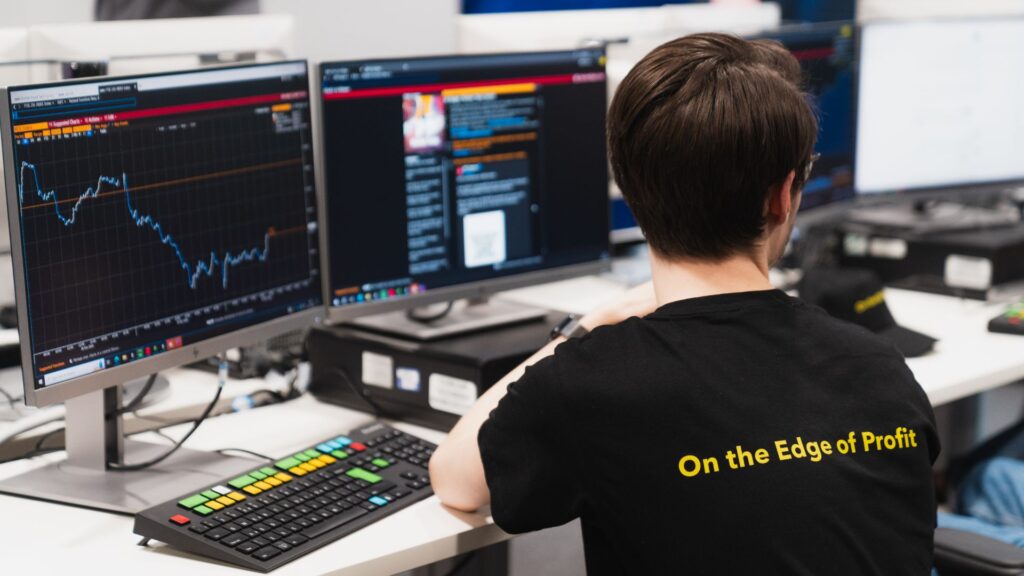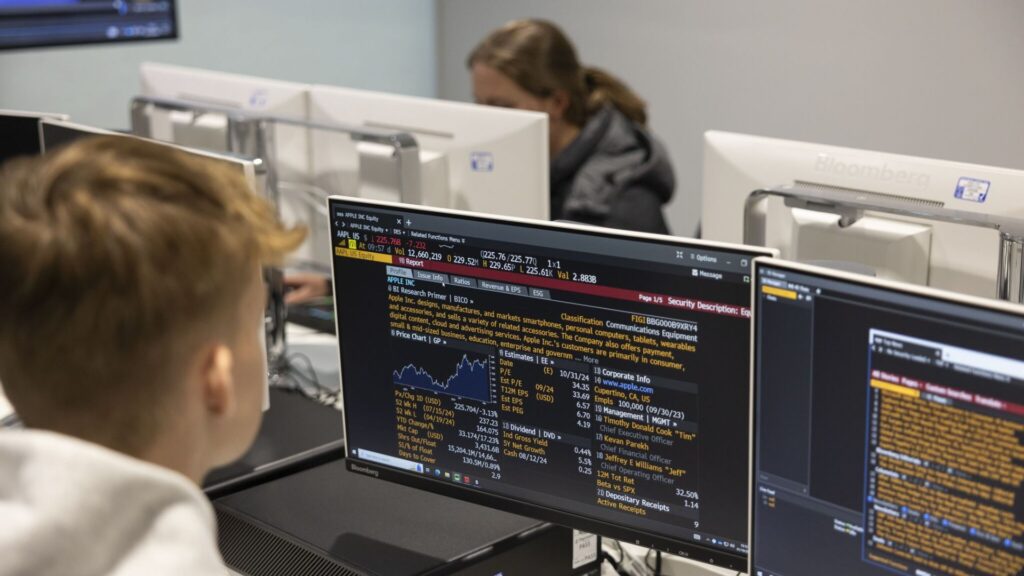
Economics is all around us, it’s a powerful subject to learn and is connected to many other things you may be interested in, whether that is sport, fashion, music and entertainment or good coffee. Professor of Economics and International Business, Christopher Dent talks about the interconnections of economics and the benefits of studying this dynamic area.
“Economics is all about connections. You can’t just understand economics with numbers. Economics is one of the most interesting interdisciplinary subjects because it’s connected to so many other subjects such as geography, politics, sociology, psychology, history, international relations and business.”
Professor Christopher Dent

What first interested you in economics?
I first took economics at A Level when I was 16 years old. I wanted to study it because I was interested in how the economies work, and how they shaped societies. At that time, the UK and other countries were going through a very deep recession and there was a lot of economics in the news. It was a time when Margaret Thatcher came into power and unemployment was going through the roof, tripling in just a few years. Interest rates were also high. Inflation was about the same as it is now, just over 10 per cent. The country was going through considerable economic and social turmoil, and I wanted to understand the causes of this and its impacts. A curiosity for history also played a part as I was interested in how economics plays a role in how countries become powerful and influential in the international system. Britain’s rise to prominence for example was largely due to being the world’s first industrial nation. When I first studied economics, Japan, South Korea and other East Asian countries were becoming increasingly powerful and were undergoing dynamic economic transformations. It was really the power of economics to shape a country’s destiny and how it navigates through the choppy waters of the international system that fired my interest in the subject.
Why is exploring the links between trade, energy and climate action important?
We live in an increasingly globalised world where trade has become much more important and a defining feature of the global economy and system. In the 1970s, trade was linked to just 30 per cent of global economic activity. Now it is 60 per cent. We’re not just trading more but also in more complex ways due to the way in which companies organise their production networks and supplier relationship between and across countries. For example, if you added up all the distances travelled by parts and components that go to make an iPhone it would total at around 800,000km.
As an economist, I also have a long-standing interest in energy, and the role it plays in the development and sustainability of societies. Economies and business cannot operate without energy. Energy helps facilitate trade and is an important trading activity. Energy relations between countries can be very significant and have huge impact, as we have seen with the recent Russia-Ukraine war and its disruptive effects on energy prices and inflation.
How we use, consume and produce energy is also the key driver of climate change. And climate change is the single biggest challenge facing humanity in the early 21st century. Economics helps you understand both the causes and consequences of climate change but also the solutions to it, such as how we can move towards using more renewable energy. So, what factors are shaping the global economy and human civilisation? What is humanities destiny, challenges, and risks? What will help humanity survive into the 22nd century? These important questions are why it is important to explore and understand the links between trade and energy and climate action and economics is at the centre of all these developments.
Why is it important to consider economics from other perspectives too?
Economics is all about connections. You can’t just understand economics with numbers. Economics is one of the most interesting interdisciplinary subjects because it’s connected to so many other subjects such as geography, politics, sociology, psychology, history, international relations and business. Economics helps explain the complex business environments in which companies and other types of enterprises operate.
How can students explore these topics at Edge Hill?
On our BSc (Hons) Business & Economics degree we have several economics-related modules such as International Economics, International Business and Sustainability in Business, which explore plenty of these aspects, including environmental economic issues as well. You can also select certain modules of interest to tailor your study. We cover basic concepts of economics like supply and demand, cost and revenues, inflation and growth, unemployment, and trade. And then we take these further. You’ll develop a deeper conceptual understanding of economics and theoretical understandings as well as developing a big toolkit of economic analysis.
We put a lot of creative effort into how we teach economics. Tutors introduce their research into modules too. A lot of economics is about asking quite simple questions, like, why do we fly mangetout from Peru to a supermarket in Ormskirk? Questions that relate to people’s own lives, where they are, what they’ve experienced and what they consume.
What are your top tips for those thinking about studying an economics related degree?
I would say watch the news on the television or listen to it on the radio every now and then. But, as often as you can, catch it on news websites which often have lots of interesting stories about the economy and economic related issues. You don’t have to go looking for it either. You’ll find probably half of the stories are related in some way to economics.
Studying at Edge Hill, you’ll benefit from opportunities to develop your knowledge, transferable skills and employability. You’ll investigate the economic impact on the social environment, the business world and the financial markets.
April 26, 2023


